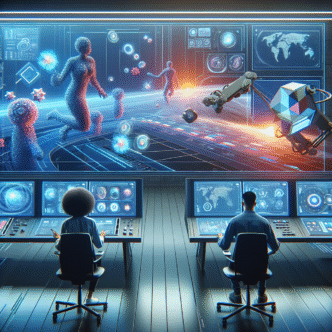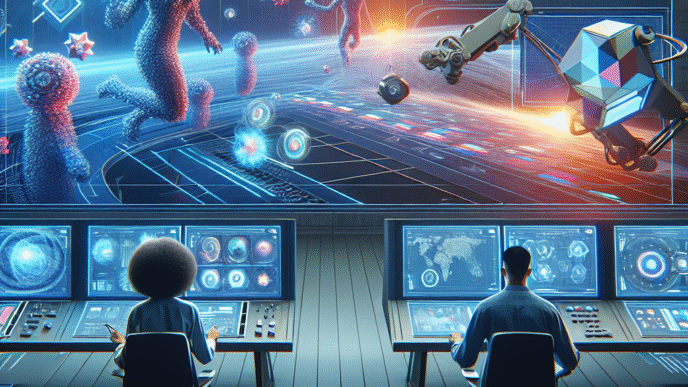In the current era of rapid technological development, the convergence of artificial intelligence (AI) and quantum computing is paving the way for a transformative shift. Both these technologies are disrupting multiple industries and their union promises to take this disruption to an entirely new level. This article explores how AI is fueling innovation in quantum computing and the potential implications of this fusion.
The Convergence of AI and Quantum Computing
Quantum computing and AI are two of the most groundbreaking technologies of the 21st century. Quantum computers have the potential to solve complex problems at speeds that are currently unimaginable, while AI is revolutionizing sectors from healthcare to finance with its ability to learn, adapt and make decisions.
Statistically, the global AI market is projected to grow to $190.61 billion by 2025, according to MarketsandMarkets. Meanwhile, the quantum computing market is expected to reach $65 billion by 2030, according to Inside Quantum Technology.
The fusion of these technologies could lead to the development of AI models that learn more efficiently and make even more accurate predictions, and quantum computers that can solve even more complex problems and process information at lightning-fast speeds.
Transformative Shift in Technology
The convergence of AI and quantum computing is introducing new possibilities and unprecedented advancements in technology. Quantum machine learning, a subfield that merges quantum physics and machine learning, is an excellent example of this fusion.
Quantum machine learning can potentially speed up the processing and analysis of large amounts of data, making AI models more efficient and effective. This technology could revolutionize everything from drug discovery to climate modeling.
For instance, pharmaceutical companies could use quantum machine learning to analyze vast databases of molecular structures, drastically reducing the time it takes to discover new drugs. Gartner predicts that by 2023, 20% of organizations will be budgeting for quantum computing projects.
The Challenges and the Exciting Future Ahead
Despite the promising potential, the fusion of AI and quantum computing also presents significant challenges. Quantum computers are still in their early stages, and their integration with AI systems is a complex process that requires extensive research and development.
However, the exciting future of this convergence is undeniable. AI algorithms running on quantum computers could lead to significant advancements in various fields, including cryptography, optimization, and machine learning.
IBM predicts that by 2025, the use of quantum computing will be mainstream in the financial services industry. This will lead to more accurate financial modeling and better risk analysis.
A New Era of Innovation
In the era of Industry 4.0, the fusion of AI and quantum computing is not just an interesting development; it’s a paradigm shift that could redefine the boundaries of technological innovation.
As we continue to explore the potential of these combined technologies, we can expect to witness extraordinary advancements that will transform industries and society as a whole. The prospect of AI fueling quantum computing innovation is a testament to the limitless potential of human ingenuity and the exciting future of technology.
While we are still at the beginning of this journey, the fusion of AI and quantum computing is poised to push the boundaries of innovation and the capabilities of these technologies. The future certainly looks promising, and we can’t wait to see what it holds.











